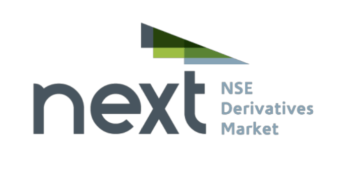The derivatives market of the Nairobi Securities Exchange (NSE) had 20 single stocks futures contracts valued at KSh 304,100 transacted on December 15th, 2020.
This drop of activity compares to the 21 contracts value at KSh 412,150 transacted during the 14th December 2020 trading session.
On Friday, December 11th, 31 contracts value at KSh 1.18 Million were transacted. This comes as the NSE announced new initial margin requirements for futures contracts expiring in March, June, September, and December 2021.
This reduction in top-ups aims to make it cheaper for investors to enter into contracts in the derivatives market.
The new initial margin requirements are scheduled to take effect on Friday, December 18th, 2020.
For instance, while the top-up for a Safaricom contract expiring on March 18th, 2021, this initial margin has n reduced to KSh 3200.00 from KSh 3300.00.
For Safaricom contracts ending on June 17th, 2021, this top-up has been reduced to KSh 3600.
The same reduction applies to Safaricom contracts expiring on September 16th and December 16th, 2021, currently with initial margin requirements of KSh4,000.00 and KSh 4,400.00.
BAT has, however, had its top-up increased from KSh 4,900, KSh 5, 000, and KSh 5, 100 for the March, June, September contracts to 5,300, KSh 5,400 while the contracts expiring on September 16th goes up to KSh 5,600.00.
This means that those investors who have taken positions on BAT contracts will have to top up their accounts.
EABL top-ups for March, June, and September 2021 fall from KSh 2,300, KSh 2,400, and KSh 2,500 to KSh 2200, KSh 2300.00, and KSh 2,400.
“Clients with existing March 2021, June 2021 and September 2021 positions will receive the initial margin refunds or will be required to top up their accounts,” said NSE in a statement.
Holders of KCB derivative contracts, expiring in June and September 2021, will have to top up by KSh 100 while top-up for Equity Group Plc top-ups for contracts expiring in March, June, September, and December 2021 remain unchanged at KSh 4,600, KSh 4900.00, KSh 5200.00 and KSh 5600.00 respectively.
Companies in the derivatives market include Safaricom, KCB Group, Equity Group Holdings, Absa Bank Kenya, East African Breweries, British American Tobacco. Also included in this segment is the NSE 25 Share Index.
“A reduction in top-ups by NSE could be aimed at lowering the cost of investing in the derivatives market. The pricing of contracts is also a reflection of the prevailing market conditions,” said Felix Ochieng, a dealer at Faida Investment Bank.
However, the NSE derivatives market is still considered highly undeveloped and dominated by a few listed firms.
“So if you are buying something short, you need to have 100% of the value of the derivative plus a margin on top, so what has been reduced is what needs to be in top so if you had to have 150% now they require 120%,” said Reginald Kadzutu, Head of Retail at Zamara.
He opines that Kenya’s market is still not at the level of derivatives when the regular equity market has no traction. There is also little retail activity with turnover and market activity concentrated on just five stocks.
“What we need to is perhaps more investor education as well as a reduction in brokerage fees so that we can see the churning of more holdings,” said Kadzutu.
The Nairobi derivatives market began trading on Thursday, 4th July 2019, with three single stock futures contracts. This followed the successful completion of a six-month Derivatives Exchange Pilot Test between July and December 2018.
The derivatives segment at the NSE made this bourse the second in Sub-Saharan Africa to introduce derivatives trading after the Johannesburg Stock Exchange (JSE) in South Africa. Others who have followed Kenya include Nigeria and Ghana.
A derivative is a financial contract whose value is derived or reliant on an underlying asset’s value, hence its name a “derivative” contract. The underlying asset may be a commodity, bond, equity, interest rate, market index, currency, or real estate.
ALSO READ: Nigeria & Ghana Follow Kenya in Launching Derivatives Markets




